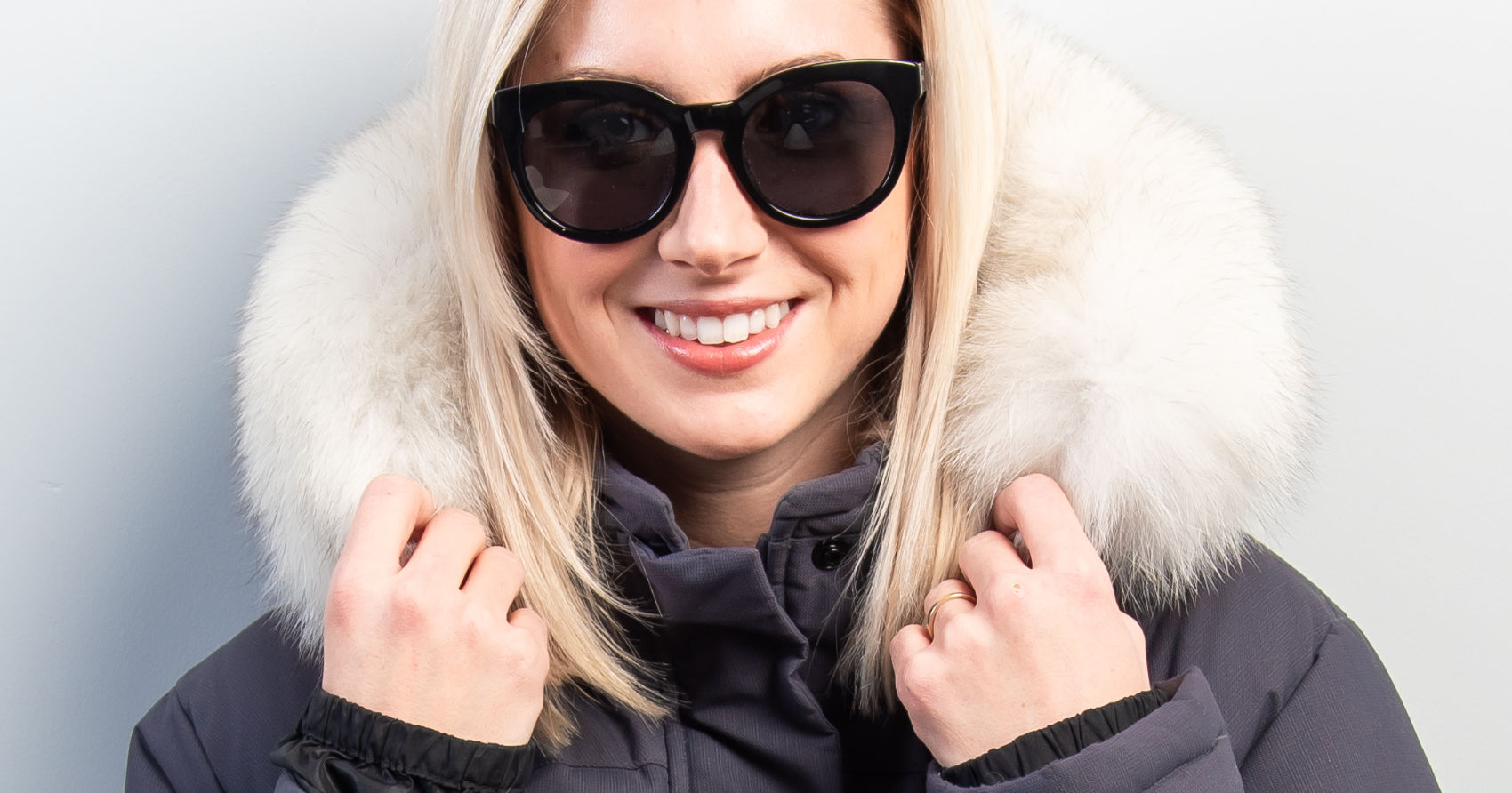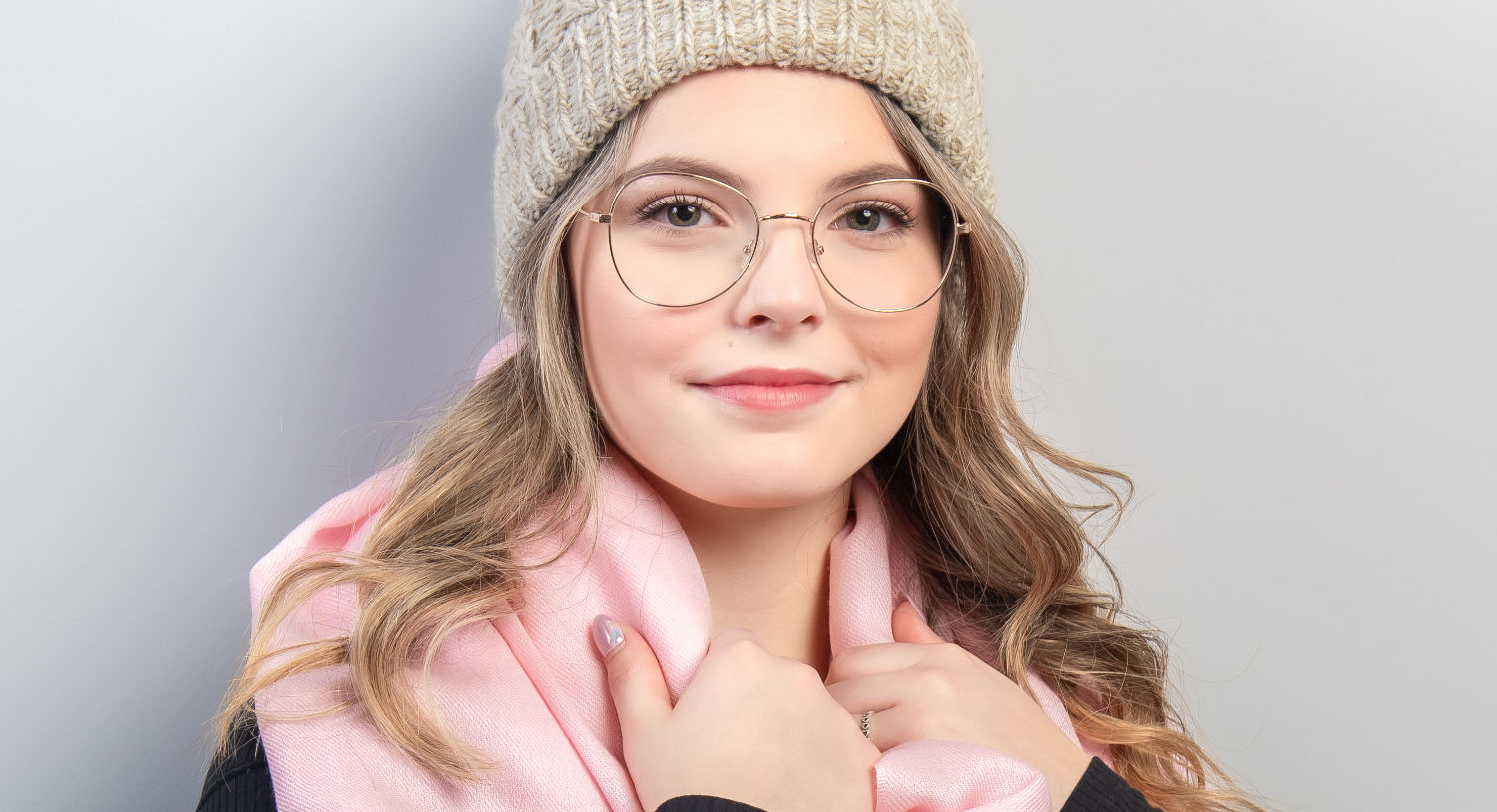Along with snow and ice, winter brings a whole list of challenges for people who wear glasses. Here are three useful tips for the bespectacled among us to keep in mind this winter.
1. How to Avoid Lens Fog
You come inside from the cold and suddenly, everything goes white! That’s not a blizzard in your home—that’s lens fog. Lens fog has also become a common issue in the age of Covid-19 with everyone wearing masks. Lens fog on glasses is caused by condensation from your breath clinging to the inside of the lens. When you’re out in the cold, this condensation can’t evaporate per usual so it collects inside the lens. Once you go inside and the temperature changes rapidly, this condensation immediately tries to evaporate all at once, causing a haze on your glasses. This lens fog can also happen when you go into a very humid area like a hothouse garden.
Ask your local Vogue Optical optician about anti-fog wipes or sprays you can use on your lenses. If you have a well-fitting mask with a reliable nose strip inside, you might be able to block some of that breath condensation by wearing your mask outside (you could even cover it with a scarf or a high coat collar).
By cleaning your lenses properly and frequently (not just rubbing your lenses on your t-shirt as this doesn’t get rid of oils), this leaves less residue on your lenses that condensation can cling to later on. Sometimes cleaning your lenses with dish soap can also alleviate lens fog.
2. Wear Sunglasses (Yes, Even Though It’s No Longer Summer)
Don’t put those sunglasses away just yet! Just because we’re not at the beach doesn’t mean harmful UV rays have gone away. On the contrary, snow and ice can actually reflect UV rays just like sand and water. You might have noticed your eyes feeling sore or grainy after spending time out in the snow—this could be due to a sunburn on your eye caused by UV rays, i.e. “snow blindness.”
We recommend wearing sunglasses or prescription goggles with UV protection to help avoid eye damage caused by winter UV rays. If you enjoy winter sports that involve higher altitudes (skiing, snowboarding), it is extra important that you invest in a quality pair of polarized lenses since UV rays are more intense at higher altitudes. For extra protection from UV rays, invest in a pair of goggles or sunglasses that wraps around so the delicate skin around your eyes is also covered.

3. Driving During the Winter
You’ve probably noticed this one before too—you’re driving during the winter and the sun hits a patch of ice and its bright glare temporarily blinds you. Making use of your visor and keeping plenty of distance between you and the car in front of you are the two basic ways to avoid this, but drivers can also consider taking a different route, keeping your windshield clean of streaks, focusing on road markings to guide you and investing in a pair of anti-glare sunglasses.


